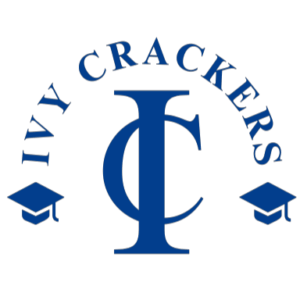The 90-Day Blueprint for GRE and GMAT Success
Embarking on the journey to conquer the GMAT Focus Edition or GRE requires strategic planning, dedication, and a structured study plan. These exams serve as gateways to prestigious graduate programs and are critical components of your academic and professional journey. Building a comprehensive study schedule tailored to the unique demands of each exam is essential for achieving your desired scores. In this guide, we’ll outline a detailed 3-month study plan specifically designed to optimize your preparation for GMAT Focus Edition or GRE, equipping you with the skills and confidence needed to excel.

Month 1: Setting the Foundation
Week 1: Diagnostic Assessment and Goal Setting
- Analyze your performance thoroughly in each section to identify areas of focus and improvement. Ideally you should invest as much time in reviewing your performance as you invested in taking the test. Majority of the aspirants don’t invest enough time on reviewing and the ones who do generally score well on GMAT or GRE.
- Set realistic score goals based on the requirements of your target programs and personal aspirations. This involves determining the typical GMAT or GRE scores required by your desired schools and then comparing them to the average scores among your fellow applicants. For instance, if you’re an Indian Software Engineer, you’ll be in a highly competitive applicant pool where achieving an outstanding GMAT or GRE score is essential to distinguish yourself.
Week 2: Content Review and Strategy Development
Dedicate this week to familiarizing yourself with the content and structure of the test you are planning to take (GMAT or GRE).
- Make use of official study materials, prep books, and online resources to solidify core concepts. Begin with the official guides provided by the test makers, such as GMAC for GMAT and ETS for GRE. For Verbal, consider the Manhattan Prep guides, known for their quality. For Quant, the Official Guides and Official Review Guides are highly recommended for their effectiveness.
- Experiment with different test-taking strategies to determine which approaches yield the best results for you. These may encompass methods for time management, prioritizing questions, and tackling various question types within each section. Deconstruct the GMAT into its individual segments: Data Insights (DI), Quantitative Reasoning, and Verbal Reasoning. Identify the areas where you feel least confident or encounter the most difficulty. After each practice session or test, meticulously assess your performance using different strategies. Evaluate factors like accuracy, speed, and overall comfort level. Based on your analysis and reflections, refine your testing strategies. Consider amalgamating elements from different strategies or adjusting them to better align with your requirements. Incorporate your preferred strategies into your regular study regimen. Practice using them consistently across a spectrum of question types and difficulty levels. As your official GMAT exam date approaches, simulate test conditions as closely as possible during your practice sessions. Practice under timed conditions utilizing official GMAT practice tests or realistic mock exams.
Week 3-4: Intensive Subject Review
Allocate specific time slots for each section of both exams and focus on comprehensive subject review.
- Dive deep into key concepts, formulas, and problem-solving strategies. Start by pinpointing the essential concepts and formulas pertinent to each segment of the GMAT: Quantitative Reasoning, Verbal Reasoning, and Data Insights. For instance, in Quantitative Reasoning, concentrate on topics such as arithmetic, algebra, probability, permutations & combinations, and statistics. In Verbal Reasoning, emphasize subjects like reading comprehension techniques and critical reasoning fundamentals. Employ a range of study materials to enhance your comprehension of crucial concepts and formulas. These resources may encompass official GMAT guides, preparation books, online materials, and instructional videos.
- Actively engage yourself with the material during your study sessions, avoiding passive reading or rote memorization. Dive into practice problems, employing the concepts and formulas you’ve acquired to solve them actively. Explore diverse problem-solving strategies and methods, building a repertoire of approaches for addressing different types of questions. Feel free to revisit complex concepts or subjects that pose challenges for you. Utilize a variety of resources and explanations to clarify uncertainties and enhance your comprehension.
Month 2: Skill Enhancement and Practice
Week 1-2: Intensive Practice Sessions
Incorporate daily practice sessions focused on timed drills and exercises to improve speed and accuracy.
- Utilize adaptive learning platforms and question banks to target your weak areas. Incorporate practice problems and quizzes into your study routine to apply concepts in a real-world context.
- Keep track of your progress and performance to monitor improvements over time. Evaluate your performance objectively, discerning strengths, weaknesses, areas needing enhancement, and patterns of advancement or plateau. Compare your current performance with baseline assessments conducted earlier in your preparation. Monitor shifts over time to assess advancements or regressions in performance. Identify trends and patterns in your data to pinpoint areas of progression and those necessitating renewed focus. Take note of particular question types or concepts where you consistently encounter difficulty, as these may warrant extra attention and review.
Week 3-4: Sectional Practice and Test Simulation
Dedicate each day to practicing a different section of both exams. Let’s say you can practice Verbal & Quant on Mondays and then Verbal & DI on Tuesdays. Similarly, you can plan for other days of the week.
- Implement timed practice sessions to replicate real exam conditions and enhance your pacing. Begin by tackling 10 questions within 20 minutes for each section, totaling 30 questions in 60 minutes. Then, take a brief break before repeating the process. Engage in this practice routine for a week to refine both accuracy and time management skills. Following this initial phase, adjust to solving 23 Verbal questions in 45 minutes, 21 Quant questions in 45 minutes, and 20 Data Insights questions in 45 minutes. Initially, take breaks between sections for a week, then transition to a GMAT-like or GRE-like experience where you align sections as you would during the actual exam (including breaks between sections).
- Engage in full-length practice tests at least once per week to evaluate your overall readiness and enhance your test-taking endurance. These tests closely mirror the conditions of the actual GMAT or GRE exam, encompassing timing, structure, and question formats. They provide an authentic assessment of your preparedness and performance within test-like parameters. Such tests enable you to measure your overall readiness for the GMAT or GRE, pinpoint strengths and weaknesses across various sections, and highlight areas necessitating further review or practice. Arrange your practice tests to mirror the conditions of the actual exam, scheduling them for times such as mornings or during your scheduled exam time. Complete each full-length practice test in one sitting to bolster your test endurance and replicate the mental and physical demands of the exam. During the practice test, avoid pausing or interrupting the session, and refrain from checking answers until the end of each section. Utilize official GMAT practice tests offered by the Graduate Management Admission Council (GMAC) or GRE practice tests offered by the ETS for the most accurate representation of the exam. These tests mimic the exam interface, question types, and scoring algorithm precisely. After completing the practice test, meticulously review your results and assess your performance across all sections. Analyze your scores, timing, and accuracy to identify both strengths and weaknesses. Pay close attention to any recurring difficulties with specific question types or time management issues in particular sections. Utilize the insights gained from your practice test analysis to pinpoint areas for improvement and prioritize your study efforts accordingly. Concentrate on addressing weaknesses and inconsistencies in your performance to optimize your preparation for the GMAT or GRE exam.
Month 3: Fine-Tuning and Test Readiness
Week 1-2: Review and Reinforcement
Use this time to review challenging concepts and strategies, focusing on retention and reinforcement.
- Participate in group study sessions or enlist the support of tutors to resolve any lingering uncertainties. Group study sessions offer an avenue to collaborate with peers, exchange knowledge, and gain diverse perspectives on various topics and question formats. Collaborate with classmates, friends, or fellow test-takers to establish regular group study sessions dedicated to GMAT or GRE preparation. Alternatively, join existing study groups via online forums, social media platforms, or local GMAT or GRE prep communities to engage with individuals who share similar goals. Consult experienced tutors or instructors specializing in GMAT or GRE preparation to seek guidance. Tutors can offer personalized assistance, customized study plans, and targeted instruction to address your unique requirements and objectives. Arrange one-on-one tutoring sessions or participate in group tutoring sessions facilitated by qualified instructors to benefit from expert guidance and support.
- Continue taking practice tests under simulated exam conditions to identify areas for further improvement and follow the steps highlighted above.
Week 3-4: Test Simulation and Confidence Building
Simulate the test day experience by taking full-length practice tests at the same time of day as your actual exams.
- Emphasize sustaining focus and alleviating test anxiety throughout practice sessions. Employ methodologies like the Pomodoro Technique, alternating focused study intervals (e.g., 25 minutes) with brief breaks to bolster concentration and productivity. Incorporate mindfulness or meditation practices to enhance concentration and mental acuity. Prioritize techniques such as deep breathing, visualization, or progressive muscle relaxation to cultivate a calm mindset and sharpen focus. Engage in active recall by periodically testing yourself on essential concepts or formulas without relying on study materials. This reinforces comprehension, aids memory retention, and fosters heightened concentration during practice sessions.
- Integrate relaxation methods to maintain composure and assurance on the day of your exam. Employ relaxation techniques like deep breathing, visualization, or progressive muscle relaxation to mitigate anxiety symptoms and foster a feeling of tranquility and command. Embed mindfulness practices into your daily regimen to nurture awareness of the present moment and diminish stress levels. Practice mindful breathing exercises, body scans, or guided meditations to foster relaxation and mental clarity. Engage in regular physical activities like yoga, walking, or jogging to alleviate tension, uplift mood, and bolster overall well-being. Physical exercise can alleviate anxiety symptoms and enhance focus during study sessions.
Final Days Before the Exam
- Prioritize rest and relaxation in the days leading up to the exams to ensure you’re mentally and physically prepared.
- Review key formulas, vocabulary, and strategies, but avoid last-minute cramming.
- Double-check all necessary documents and materials to ensure a smooth test day experience.
Developing a meticulously structured study plan spanning three months is crucial for excelling in the GMAT Focus Edition or GRE. Adhering to the recommendations detailed in this guide enables you to optimize your preparation, enhance confidence, and approach exam day with clarity and determination. Keep in mind that maintaining consistency, unwavering dedication, and adaptability are paramount in conquering these exams. With persistence and resilience, you can unlock promising prospects for academic and professional growth. Best wishes on your journey!
How can IvyCrackers help you?
When it comes to making informed decisions about an MBA program, there is often no substitute for firsthand knowledge and advice from those who have been through similar experiences. That’s why we, at IvyCrackers, firmly believe that one of the best ways to gain valuable insights about a particular MBA program or university is to interact with current students and alumni of that very university
Connecting with them can give you a more comprehensive understanding of what it is be part of that university, both in terms of coursework and extracurricular activities, as well as the kind of career options that may be available after graduation. Our “Mentor Session” initiative is designed to help facilitate these connections by pairing you with members of our community who can share their personal experiences and perspectives with you.

Our team of mentors, at IvyCrackers, has been passionately dedicated to helping countless candidates achieve their academic and professional goals. We have worked tirelessly to provide comprehensive services that are tailored to your specific needs, including refining your application essays, conducting mock interviews, perfecting your resumes, and strengthening your profiles. Our commitment to excellence is reflected in the success stories we have helped create, with our clients consistently achieving remarkable feats in their chosen fields.
We believe that everyone has the potential to excel, and we are here to help you unlock that potential. So why not head over to our ‘Mentors’ section now and discover how we can help you fulfill your dreams today?
Visit our Youtube Channel, Linkedin or Instagram Page for regular updates!


